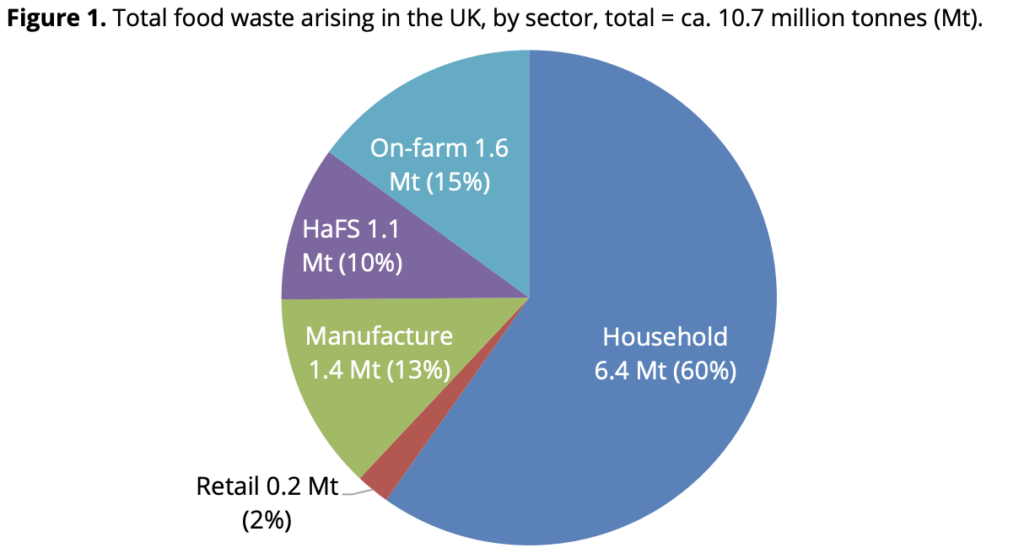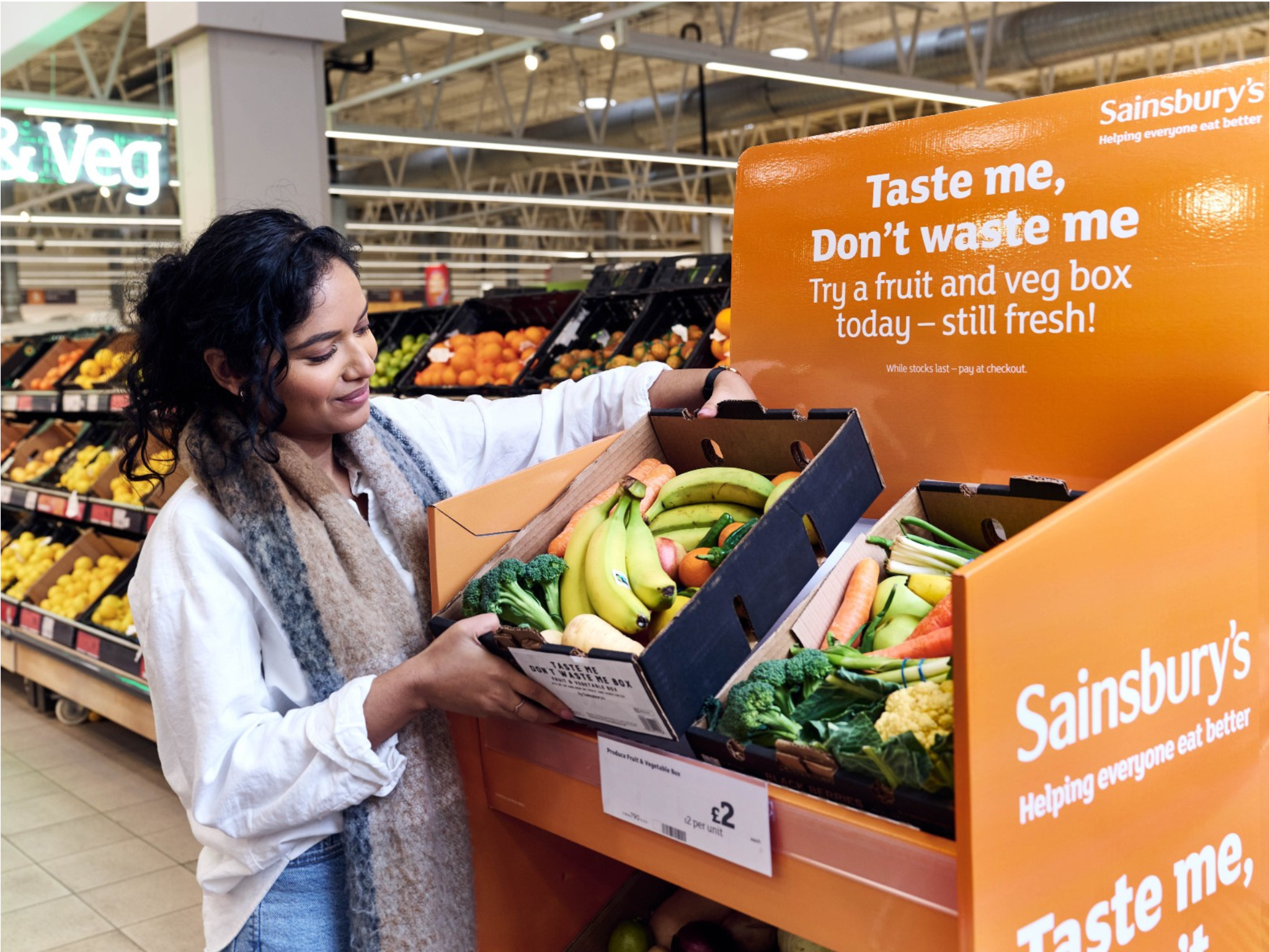4 Mins Read
It should be mandatory for food producers in the UK to disclose how much goes to waste, a group of food businesses have told the environment secretary.
With around 11% of Brits going hungry every year, the potential to address food security by cutting back on waste is massive – especially since food waste costs the economy £21.8B annually.
To push the food industry to make the change, a group of over 30 businesses have written to Steve Reed, the UK’s environment secretary, urging the government to companies to disclose how much food is thrown away as a way to reduce waste across the country.
As reported by the Guardian, the letter was led by Jamie Crummie, co-founder of surplus food app Too Good To Go, and the British Retail Consortium, which represents thousands of retailers, ranging from large supermarkets to independent shops.
It was co-signed by some of the UK’s largest grocers, including Tesco, Sainsbury’s, Waitrose, Aldi and M&S, alongside major food companies like Nestlé, Innocent Drinks, Yoplait (owned by General Mills), Princes, and Yo! Sushi.
MPs show interest in mandating food waste reporting

The latter argues that mandating companies to report how much food they produce and what happens to it will push them towards better waste management policies, more efficient processes, and greater reuse of surplus food.
The UK government has pledged to halve food waste by 2030 (from a 2015 baseline), in line with the UN’s Sustainable Development Goals. But the country has not yet laid out measures to do so.
Reed, who heads up the Department for Environment, Food and Rural Affairs (Defra), has previously spoken about his goal to deliver a “circular economy” with fewer amounts of waste. And the Labour administration has pinpointed a zero-waste economy as one of its five climate priorities.
“We are delighted to see the environment secretary set out the creation of a zero-waste economy as a priority,” Crummie told the Guardian. “In line with this ambition, and with the support of more than 30 businesses from across the food sector, we hope to see swift implementation of mandatory food waste reporting to ensure transparency and accountability when it comes to our food.”
The signatories suggest that the mandatory reporting they’re calling for wouldn’t be imposed on farmers, but on food companies above a certain size beyond the farm gate. They are also now working with MPs to raise awareness about the problem, and ministers are reportedly willing to consider putting a duty on companies to report their food waste.
Wera Hobhouse, the Liberal Democrat MP for Bath and vice-chair of the parliamentary environment group, said: “The number of meals that are simply thrown away in the UK each week is deeply concerning. To reduce food waste across the board, we first need to move beyond the throwaway culture we have become far too used to.”
She added: “That’s why we are pushing to work with businesses by putting in place the right incentives to cut back on waste and overconsumption.”
Defra working with businesses after public support for mandatory reporting

Every year, 10.7 million tonnes of food goes to waste in the UK every year, accounting for a quarter of the country’s food supply, as per the food waste charity WRAP. Of this, 60% comes from households, while 25% is sourced from the manufacturing, hospitality, and retail sectors.
This results in annual economic losses equal to £250 per person, with household food waste alone amounting to 4.5% of the country’s overall greenhouse gas emissions. “Food waste is one of the largest contributors to climate change,” said Crummie.
Some businesses are taking action to cut back on waste, whether it’s through partnering with apps like Too Good To Go or Olio, using AI platforms like Winnow to streamline supply chains and related waste, or donating surplus items to food banks.
UK retailers are hoping to lead the charge. Tesco, which has a surplus deal with Olio, has reduced food waste by 45% since 2016, while Sainsbury’s redistributed 58% more surplus food in 2023 than the year before. And Aldi managed to cut waste by 57% between 2017 and 2022, thanks in part to its partnership with Too Good To Go. The discount retailer has now revised its 2030 target to cut food waste by 90%.
In 2018, WRAP and the Institute of Grocery Distribution initiated the UK Food Waste Reduction Roadmap to halve waste by 2030. In 2021, businesses that measured and reported data collectively saved 251,000 tonnes of food waste, worth £365M. And as of last year, more than 300 food businesses have committed to the strategy so far.
Last year, Defra completed a consultation with over 3,800 individuals on whether the government should make it mandatory for large businesses to report their food waste. Given the options of either voluntary commitments or mandated food waste measurement and disclosure, 80% chose the latter.
So clearly, there’s support for legislation making food waste reporting compulsory. “The amount of food we waste is a stain on our country. We are working with business to drive down food waste and make sure food is put on the plates of those in greatest need,” Defra told the Guardian. “This includes supporting surplus food to be redistributed to charities and others that can use it and on programmes to help citizens reduce their food waste.”



